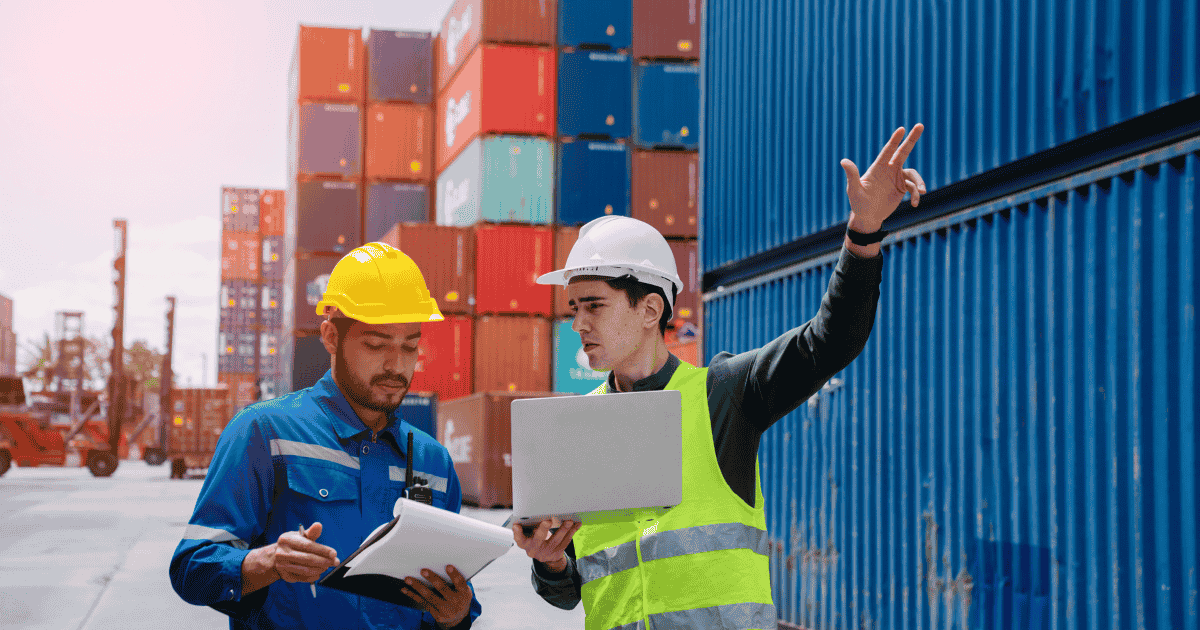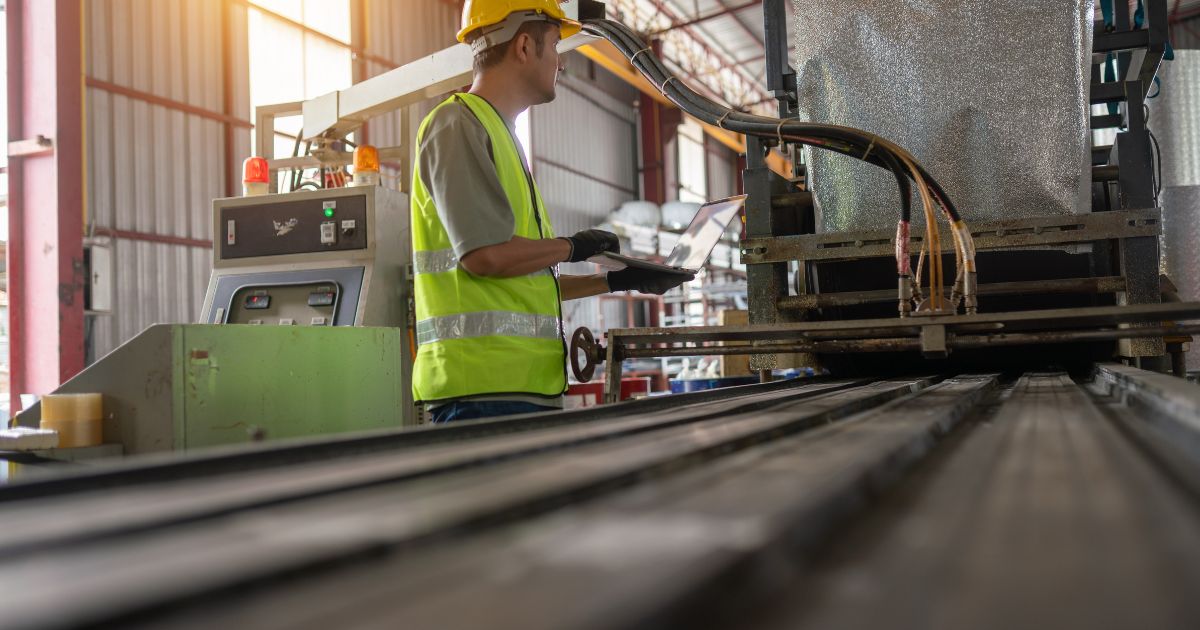Artificial intelligence (AI) is revolutionizing logistics and supply chain management (SCM) by optimizing operations and improving decision-making processes. Unlike machine learning (ML), which focuses on algorithms that learn from data and make predictions, AI encompasses a broader set of technologies that enable machines to simulate human intelligence.
In logistics, AI-driven solutions analyze vast amounts of data, automate routine tasks, and provide real-time insights to streamline processes. This article explores how AI is transforming logistics and supply chains, enhancing efficiency, reducing costs, and driving innovation in the industry.
Benefits of AI in Logistics and Supply Chain Management
For companies seeking efficiency and competitive advantage, AI offers numerous benefits that can significantly enhance operations. Here’s a comprehensive look at the benefits of incorporating AI into logistics and SCM.
1. Supply Chain Visibility
AI provides real-time visibility into the supply chain, tracking products from the point of origin to the final destination. This transparency enables companies to promptly identify and address issues such as delays or quality problems, enhancing overall efficiency and customer satisfaction.
AI systems can monitor inventory levels, shipment statuses, and production schedules in real-time, allowing for quick adjustments and minimizing disruptions.
2. Improved Supplier Management
AI assists in evaluating and managing suppliers by analyzing performance data and identifying potential risks. By automating supplier evaluation processes, AI helps companies make informed decisions about supplier selection and collaboration. This leads to more reliable and efficient supply chains, as companies can strategically manage supplier relationships and ensure consistent quality and reliability in their supply networks.
3. Enhanced Customer Experience
AI-driven chatbots and virtual assistants handle customer enquiries regarding order status, delivery times, and product information. This automation improves customer satisfaction by providing immediate responses and freeing up human resources for more complex tasks.
Therefore, AI-powered customer service solutions enable companies to offer 24/7 support, enhancing the overall customer experience and increasing customer loyalty.
4. Cost Reduction
AI optimizes various facets of the supply chain, including demand forecasting, route planning, and warehouse automation. By analyzing historical data and current market trends, AI algorithms can accurately forecast demand, leading to optimized inventory levels and reduced carrying costs.
AI also optimizes transportation routes, reducing fuel consumption and transportation expenses.
In warehouses, AI-powered automation improves efficiency by optimizing storage layouts and automating repetitive tasks, reducing labor costs and improving operational efficiency.
5. Sustainability
AI contributes to sustainability efforts by optimizing resource utilization and reducing waste. AI-driven systems assist companies in minimizing their environmental footprint through efficient route planning, inventory management, and predictive maintenance practices.
By optimizing transportation routes and reducing unnecessary movements, AI helps companies reduce carbon emissions and promote eco-friendly practices in their supply chains.
How AI is Used in Logistics
AI can and has already transformed logistics in many ways. Here is how it can be used, with examples of companies that have already implemented AI in their logistics resulting in optimized routes, increased efficiency, and cost savings.
Examples of AI in Logistics
- Route optimization: AI-powered route optimization tools analyze a variety of factors, including real-time traffic conditions, delivery time windows, weather patterns, and fuel efficiency to determine the most efficient routes for transportation. By dynamically adjusting routes based on current conditions, these tools help reduce delivery times, lower fuel consumption, and cut operational costs. This leads to more reliable and timely deliveries, enhancing customer satisfaction and overall efficiency in logistics operations.
- Warehouse automation: AI-driven systems and robots are revolutionizing warehouse operations by automating tasks such as picking, packing, and sorting. These AI-powered robots can navigate warehouses, identify items, and handle products with precision, significantly increasing the speed and accuracy of warehouse processes. Automation reduces reliance on manual labor, minimizes errors, and optimizes space utilization within the warehouse. Additionally, AI can manage inventory levels, predict stock needs, and ensure that the right products are available when needed, leading to smoother operations and cost savings.
- Predictive maintenance: AI systems monitor the condition of equipment and vehicles through sensors and data analysis to predict potential failures before they occur. By analyzing patterns and detecting anomalies, AI can forecast when a piece of machinery is likely to need maintenance. This proactive approach helps prevent unexpected breakdowns, reducing downtime and maintenance costs. Regular predictive maintenance extends the lifespan of equipment, ensures consistent performance, and enhances overall operational reliability, allowing companies to maintain a high level of service while controlling expenses.
Companies That Have Used AI in Transport and Logistics
1. DHL
DHL has implemented AI-powered route optimization to enhance its logistics operations. The company uses AI algorithms to analyze real-time traffic data, delivery schedules, and vehicle capacity to optimize delivery routes. This approach has significantly reduced delivery times and operational costs.
For instance, DHL reported a 15% reduction in miles driven for delivery routes in some regions, resulting in lower fuel consumption and emissions.
Their AI system also adapts routes dynamically to account for changing traffic conditions, ensuring timely deliveries and improving customer satisfaction.
2. UPS
UPS utilizes AI for predictive maintenance across its vehicle fleet. AI algorithms analyze data from vehicle sensors to detect anomalies and predict potential equipment failures before they occur.
This proactive maintenance strategy has reduced vehicle downtime by 30% in some areas. By preventing unexpected breakdowns, UPS has saved millions of dollars annually in maintenance costs.
This AI-driven maintenance schedule ensures that vehicles receive service precisely when needed, extending their lifespan and maintaining their fleet’s reliability. This approach not only improves operational efficiency but also enhances UPS's ability to deliver parcels on time, meeting customer expectations consistently.
AI in Military Logistics
The United States military has integrated AI into its logistics operations to improve efficiency and effectiveness. AI is used to optimize SCM, including inventory management, transportation, and maintenance scheduling.
For example, the U.S. Army employs AI algorithms to predict equipment failures and schedule maintenance preemptively, reducing downtime and increasing operational readiness.
AI also helps in route planning for military convoys, considering factors such as terrain conditions and enemy threats to ensure safe and efficient transportation of supplies.
These AI applications enhance logistical decision-making, streamline operations, and support military missions by ensuring timely and reliable delivery of resources to troops in the field.
How AI is Used in Supply Chain
A supply chain for fast moving consumer goods (FMCG) refers to the network between suppliers, manufacturers, distributors, retailers, and ultimately consumers. This section will explore how AI can optimize FMCG supply chains by enhancing efficiency, reducing costs, and improving responsiveness to consumer demands.
AI in Supply Chain Examples
- Demand forecasting and inventory management: AI is used to analyze historical sales data, market trends, weather patterns, and other relevant factors to forecast consumer demand accurately. By predicting demand fluctuations, AI helps FMCG companies optimize their inventory levels. This prevents overstocking, reducing storage costs, and minimizes stockouts, ensuring products are available when consumers need them. AI-driven demand forecasting also enhances responsiveness to changes in consumer preferences and seasonal demands, improving overall supply chain efficiency.
- Dynamic pricing and promotion optimization: AI algorithms analyze consumer behavior data, competitor pricing, and market conditions to adjust pricing strategies in real-time. This allows FMCG companies to optimize prices based on demand elasticity and maximize revenue. AI can also optimize promotional strategies by identifying the most effective promotions for different customer segments. This approach improves sales forecasting accuracy and ensures that promotional activities are aligned with demand, leading to increased sales and profitability.
Companies That Have Used AI in Their Supply Chain
1. Unilever
Unilever utilizes AI to forecast demand and optimize inventory management. AI algorithms analyze sales data, weather patterns, and historical trends to predict consumer demand accurately.
This approach has reduced stockouts by 30% and decreased inventory levels by 25%, resulting in significant cost savings and improved supply chain efficiency.
Unilever's AI-driven inventory optimization ensures products are available when needed while minimizing excess inventory.
2. PepsiCo
PepsiCo employs AI to optimize pricing and promotional strategies. AI algorithms analyze consumer behavior, competitor pricing, and market trends to adjust prices dynamically.
This approach has increased revenue by 15% in certain product categories by ensuring optimal pricing based on demand elasticity.
Additionally, AI helps PepsiCo identify the most effective promotional tactics, leading to improved sales and profitability.
3. Nestlé
Nestlé uses AI to enhance supply chain visibility and real-time analytics. AI systems monitor and analyze data across the supply chain, providing insights into inventory levels, transportation routes, and production schedules. This visibility allows Nestlé to respond quickly to disruptions and optimize logistics operations.
AI-driven analytics have improved operational efficiency by 20% and reduced supply chain costs by 15%, ensuring smooth operations and timely delivery of products to consumers.
Custom Software Integration of Generative AI in Transportation and Logistics
Integrating AI into logistics and supply chains is a transformative process that can enhance efficiency and competitiveness. The process typically begins with an assessment and planning phase, where companies evaluate their current logistics and supply chain processes. This involves analyzing existing systems, identifying pain points, and setting clear objectives for AI integration, such as improving efficiency, reducing costs, or enhancing customer service.
The next critical step is data integration. Companies gather data from various sources including enterprise resource planning (ERP) systems, IoT devices, and external feeds. This data is cleansed, preprocessed, and stored in a way that supports AI model training and real-time analytics. Choosing the right AI algorithms is crucial during the AI model development phase. Companies select algorithms that suit their specific use cases, such as demand forecasting, route optimization, or predictive maintenance. AI models are then trained using historical data to ensure accuracy and reliability in predictions.
Custom software development plays a pivotal role in integrating AI into logistics and supply chains. Companies need tailored solutions that integrate AI models seamlessly into their existing systems. These solutions provide real-time analytics, reporting capabilities, and user-friendly interfaces that simplify navigation and utilization by logistics and supply chain personnel.
Deploying AI-integrated software requires careful planning to minimize disruption to operations. Post-deployment, companies monitor AI performance and system usability, implementing feedback loops for continuous improvement. Choosing the right partner is essential for successful AI integration. Companies should select a partner with expertise in AI technologies and their application in logistics and supply chains. The partner should have a proven track record in developing custom software solutions tailored to specific business needs, focusing on scalability, flexibility, and user experience.
AppIt is an ideal partner for integrating AI into logistics and supply chains. With specialized expertise in AI integration and custom software development, AppIt designs scalable solutions that grow with businesses and adapt to changing needs.
AppIt prioritizes user experience, ensuring intuitive interfaces that simplify adoption and use of AI-integrated systems. By leveraging AppIt’s expertise, companies can optimize their logistics and supply chain operations, improving efficiency, reducing costs, and delivering superior service to their customers.
Contact us at AppIt to find out more about how we can help you optimize your logistics and supply chain management by integrating AI.








